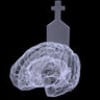Doubt Versus Faith
So any of you watched the new episode of Cosmos. ...It is encouraging doubt as a contrast to faith. It's not overly atheist sounding but it took a little knife, jabbed it into the three great religions foundational doctrine which is "faith" and twisted it ever so gently.
I didn't need to watch Cosmos to conclude that religion is BS. Religion has been pushing their crap on the population for thousands of years and it's time for it to go. If the religitards can't handle what the show is presenting, TS.
Yes. Referring to them as religitards shows how your philosophy is oh so much better than theirs. I would say, adopting such an arrogant view of others, without bothering to attempt to understand how they hold that view will definitely contribute to great things like more peaceful human interaction. On second thought, I so seriously doubt that it will, that I've decided not to add the word to my dictionary.
I think religion emerged because at that point we needed something to hold on to, to understand the world around us. So its not bullshit. It's just quite possibly outdated.
Even if you're religious, it's much wiser to doubt than to blindly believe. As Life of Pi elegantly put it:
Pi: "Faith is a house with many rooms."
Writer: "But no room for doubt?"
Pi: "Oh, plenty. On every floor! Doubt is useful--it keeps faith a living thing. After all, you cannot know the strength of your faith until it is tested."I think doubt is humanity's's greatest strength. It helps us discover new things. It helps to keep our minds open to new ideas. And it keeps us grounded in reality.
I think doubt is also humanity's greatest weakness. It detracts us from discovering new things. It prevents our minds to try new ideas and keeps us from expanding our view of reality. Doubt in itself is restricting. I believe (once again, I use this word because I do not hold the candle of certainty for the validity of my statement) that for knowledge to grow, doubt and faith must tug and pull on each other constantly. It can't be one or the other. Doubt and faith is a contraction that births knowledge and understanding.
That's life. Isn't it? Finding the proper balance. Everything within us can be seen as a vice, or a virtue; depending on where we stand to look at it.
true, the contrast is what produces depth.
Doubt must be nullified in order for faith to be established.
Any doubt, no matter what kind, is undermining faith.
This is why each can only speak/teach his own kind of Faith, meaning that it will be inclusive of his own doubtfulness.
But there a Faith exclusive of all doubtfulness and this faith never compromise with doubt.Blind faith is the worst kind of faith. It makes you gullible and stupid.
And the only evidence of blind faith is the perception or the idea that blind faith can exist...
And indeed it does for it is that man.
Otherwise its existence would be an impossibility.Well I believe, (say believe because I don't have the actual database or experiment to conclusively say so) that that is precisely the point. Everything is based on blind faith. The limits of our human consciousness cannot allow us anything else but to see reality based on what our senses tell us. We have faith that our senses are accurate in determining reality. But present-day physicists now see that the fundamental problem of understanding the nature of universe as it is outside of our human experience cannot be transcended until we understand ourselves. We seem to be now falling into the same trap that led to the religions of the world. Our desire to see the universe by understanding our nature first is the key motivator of faith. It is also the key intellectual fuel of science. I think science is the new religion.
Sorry, but that makes no sense. They aren't even remotely related.
Religion was the way we understood ourselves and the universe. That was what was available to us. Then came the scientific method. it became the new way to concur on what reality is. But then, we are now seeing that reality outside of our perceptive powers, namely our senses, is very different. Black is not black if you have large irises. and color is relative to our biological need to perceive it. Reality can be anything depending on what you are.
Sorry, but reality defines itself, we don't define it.
You're funny. You probably think that reality is based on say, what you see and hear. Because your senses can never fool you.
Sorry, but reality...what's real is something that is based on what's real for an organism. Like for instance, night time is not dark for nocturnal animals. Most animals don't know have use for pink of tangerine. To a fish, it is flying not swimming because water is its air. It drowns in air the way we drown in water. Reality is very relative to the organism. It is observation that defines the experience of reality. And only organism with eyes can observe...namely us. So WE define reality, based on our powers of observation, which changes depending on the tools we use for observing.
ever heard of the wave particle duality?
Einstein : "It seems as though we must use sometimes the one theory and sometimes the other, while at times we may use either. We are faced with a new kind of difficulty. We have two contradictory pictures of reality; separately neither of them fully explains the phenomena of light, but together they do""color is relative to our biological need to perceive it"
You mean like a color blind person seeing a red apple and measuring the wavelength of the light will conclude that wavelength is that we associate with blue light? The reality, of course, is the wavelength, not the word used to describe it...but even so the color blind person will call it "red".A color blind person has an abnormality in his genes. That person just learned that there is a concept of "red" apple. colour blind people see red on some green things. To that person, the leaf is red. but then its called green.
It is not the same as a bat or a cat that evolved to see the world differently. A bat and a cat sees night as a pale day. Color perception is dependent on the organism's biological need to perceive. Colors are real to us, because we have evolved to perceive it. Colors do not exist outside of us, at least not in the way we understand it. These are biological codes. You cannot say that our perception of colour is more real than a cat's, or a bat's.
But going back to my original point. You can doubt what I say and check for yourself, and if you find that I was right, you have two choices: you can doubt some more and continue to search for answers, or have faith in your source. If you have the energy to continue to doubt, there will be no end to your research because you will not have faith in any answer you come up with. But if you have faith in your source, you will just say "she's right' and continue to eat your baloney sandwich and leave it that. You can also move on to other deeper mysteries and then trust your sources on that too. So you end up being free to explore mysteries and not get stuck on one specific mystery. Because you doubted and then had faith that the answer you got was the right one. Its just a choice. faith and doubt work hand in hand. Its not just one or the other.Besides, Science was born from the need to negate religious claims. So that said, religion gave birth to science. You have two choices, you can take my word for it, or check the history yourself.
 Got any evidence for that claim?
Got any evidence for that claim?
Here's a timeline of science, show us where it talks about negating religious claims?
http://www.sciencetimeline.net/And, here is the relevant quote from that link which shows this guy doesn't know what he's talking about, he admits himself.
"Science is faith. And the Gospel of that faith was written by Copernicus, Galileo, Newton, Darwin, Einstein and others. We are certainly not all scientists. I know I'm not a scientist."
So what? The biological makeup of the apple will produce the color associated with how light is works, not with how eyes work to observe the colors. Dogs can only see in black and white, does that mean reality is all black and white?
Again, you're confused, colors exist exactly the way we understand them. Biological codes?
You're wrong.
some resources on colour
http://serendip.brynmawr.edu/exchange/node/7490 - animal perception of color
Here it explains the eye/brain translation of reality:
http://www.cycleback.com/eyephysiology.htmlWhat do those irrelevant links have to do with your fallacious claims?
If I may, I think there might be some confusion. The way I understood it, it is being presented that color in itself is not a "reality," but rather a perception, a visual perception, which is limited to us only. Seems like a rephrasing of the statement, if a tree falls in the forest without anyone to hear it, does it still make a sound. Would color exist if we were not here to see it?
Not arguing either way. Just food for thought...what do you think? Is color a visual perception or an actual reality?Color is a reality, it is electromagnetic radiation (light) that our eyes have evolved to perceive.
So to you, color is light. But what is light if not a perception? How have we perceived electromagnetic radiation? What qualities does light have (without regard to anything visual) that make it real?
I guess my point is: we can only perceive things based upon our sensory receptors. Is reality defined by what we can perceive, or is there a greater reality?Light is energy, it has a frequency (wavelength), which is equivalent to its energy. We have perceived electromagnetic energy with the evolution of our eyes.
If there is a greater reality, it has never shown itself and that is all that is relevant to us.Well, I guess if it had shown itself, we wouldn't be able to perceive it. But I do get what you're saying. It wouldn't be relevant because we would not be able to perceive or experience it...
Exactly, for example, there are a group of theoretical physicists who work on the mathematics of String Theory and Multiverse Theory. Contained within these theories is the concept of extra dimensions. So far, we live in a universe that has but four dimensions that have any sort of discernible and quantifiable effects on us. Even if what they said was true, we don't experience those other dimensions in any way, they are "wrapped up" so to speak, and are quite invisible and undetectable to us.
Essentially, this makes it unrealistic to attempt any sort of experimentation or explain any given phenomena. So far, it looks great on paper, but that's about it.Indeed. No experimentation would be possible. It just seemed like an interesting idea.

"How have we perceived electromagnetic radiation?"
A whole raft of methods, beginning with our biological eyes. Then there are telescopes, radios, TV's, cameras, Xray machines, Cat scanners, and a long list of other artificial methods. We can end the list with our biological skin, as it warms up and we detect radiation impinging on it.
The thing is, what we call "light" is a very small portion of the electromagnetic spectrum, a tiny bit of a huge range of energies differing only in the energy level present. This spectrum ranges from radio/microwave waves (and lower) to gamma rays energetic enough to burn our eyes out in milliseconds, with our eyes able to see only a very limited range in the middle.Indeed. Thank you for your detailed response. My question was also heavily a rhetorical one, as the issue being discussed was the fact that we are limited to our own perceptions. That no matter what we attempt to learn, we will never know more than what our limited sensors allow us, and that everything we perceive as "real," is a phenomenon produced by our brain. We see light, we feel warmth, we hear sounds from a radio, etc. All of these are concoctions of our brain interpreting information around us. All of it is limited to a brain produced phenomenon. If we were not around to experience it, what would it be? Would it appeal to different sensors on different things out there? Would "sound" be "sound"? That is kind of where I am going with this. A statement of curiosity on what "reality" truly is, and if it is indeed simply our own perceptions , and if not, then does it really matter to even ask about it, since we would not by definition be able to perceive it.
It's too early in the morning to think about these things. I'm not sure that was in any sense logical, ha!
~Ashton
You're confused, reality is the same for all living things no matter where they live, a fish lives in the same water that we ourselves could swim in or drink, that water does not change to suit the fish. Colors do not change to suit how eyes work, they are still the same color.
I understand it quite well, what does that have to do with anything? Will you now be introducing another fallacy?
Does that quote have a point or is it a prelude to another fallacy?How can you certainly claim that you know what reality is? You are bound by the limits of your perceptions as a human. These are not fallacies, to update your understanding of reality, since you cannot yourself perform a thought experiment or a shift in perspective, I recommend you read Roger Penrose's work.
I and a great deal more people understand reality. Why don't you?
I have read much of his work, none of it supports your claims.
I cannot help you if you cannot understand what einstein means by this.
We are all blind in what we believe in because it is virtually impossible to see the whole truth.
I think doubt is kinda like salt and pepper. No kitchen should be without it. There are things we need to put it on, and things we should never put it on.
I doubt that we ever have all the answers. OR that we even regard all the right questions.
Maybe, doubt and Hope should be intertwined;
Should either one of these two win out over the other and the struggle seems to be over, (?) what then (?)
Seems like Cosmos is teaching science. Obviously, when it does so, it often refers to the past and what people believed incorrectly about things science has now discovered and allowed us to understand. It shows faith to be useless as a tool for understanding anything.
I didn't understand the last sentence but generally agree.
I have to agree with Zelkiiro. It seems perfectly reasonable to assume that if a religious person doubts, then it will test their faith. Would that not be healthy instead of blindly believing what is said?
I have to say it saddens me at the presumptions people have to create in order to judge others lacking. It also fascinates me how some blindly believe they don't display blind faith, as do others. It's simply a matter of what we put our faith in.
I'm sorry, but my brain's a little fuzzy. Were you communicating that I was being presumptous or were you making a general statement...? sorry wasn't sure
 If you did feel that way, I'd be interested to discuss it; I certainly don't want to be a hypocrite, and I can always improve
If you did feel that way, I'd be interested to discuss it; I certainly don't want to be a hypocrite, and I can always improve 
It was directed at your comment. I simply think lumping large groups like that is a shallow way to view one's fellow man. A religious person. The term is fairly generic. Most of humanity identifies with one religion, or another. Are we to assume that no religious people doubt? Since they do identify with religion it would appear probable by that statement; since we don't see large numbers of people claiming they doubted, their faith was tested, so they now have no faith. Which is the standard assumption among many atheists; if one thinks, then one would be an atheist.
We all have faith. No matter what we claim to be. Faith that we have the best bead on things. Faith that we have made sound judgments with the data available. We all accept some information as important to the equation and we all discard some. On a cosmic level who among us can claim to know what information is true and what isn't?
I have faith that most individuals follow a direction of self discovery which is right, for them. I believe everyone, whether they admit to it or not, doubts more than they follow blindly. We don't know the person behind the curtain, we only see the facade. If you believe everything you see and hear and only what you see and hear from any individual, you are coming to conclusions with limited data.Ahh okay. Thank you for bringing this to my attention. perhaps this will clarify things

This was the post to which I was referring:
"Even if you're religious, it's much wiser to doubt than to blindly believe. As Life of Pi elegantly put it:
Pi: "Faith is a house with many rooms."
Writer: "But no room for doubt?"
Pi: "Oh, plenty. On every floor! Doubt is useful--it keeps faith a living thing. After all, you cannot know the strength of your faith until it is tested."
Not the one about them being gullible.
I was speaking in a particular context, including all statements previous: religious people being those who believe in a particular religion. I did not say that all religious people have blind faith. I'm just saying that I think doubt it healthy for all of us, including those who are religious, and that I think blind faith, regardless of if we are religious, is bad. make sense? I was speaking in that context because the person with whom I was agreeing was directing the statement specifically towards a religious (meaning adhering to a specific type of belief in a deity of some kind) idea of blindly believing something without ever questioning or doubting. Please read the previous statements. I realize I could have done better to be more clear. However, my statement cannot be analyzed if isolated.
In summary, what I meant was this: Why would a religious (in the context of the Christians who posted) not want to doubt what they think in some way? It doesn't make sense to me. I thought it would be beneficial? to me, if one has had faith and never, ever doubted or questioned it or put it to some test, then it is a blind faith. On the same token, I think all people should doubt. I think we should all strive for improving ourselves and doubting that we may learn.
I hope this clarifies my view and thank you for bringing it up so that I could It was meant in a certain context and will communicate better now that it is clarified.
It was meant in a certain context and will communicate better now that it is clarified.Yes. That does clarify; to an extent. However, it did single out the religious. Why would one do that? Doesn't your point hold for any belief? By making such a statement you imply that the religious are more susceptible to such a mindset. Or, that religion is something that should be doubted more often than some other beliefs. Or, possibly, that doubt would cause the religious mind more angst than doubt on some other subject. I would be curious why you would imply that; by agreeing; without commenting to that affect.
And, I would also be curious to what you meant by [i]'Why would a religious (in the context of the Christians who posted) not want to doubt what they think in some way? It doesn't make sense to me.' Part of the conversation may not be appearing on my computer. I don't see those statements made by anyone claiming to be Christian.I thought of a better way to explain this.
I myself am religious. I'm not making this up, check my profile. I believe in A God (deity, w/e) and I believe in Jesus as history tells us, but not what any of the major religions teach. I am therefore, religious. Why would I single out and attack the "religious" (i hate that term but don't know a good way to say it) if I myself am that way?? Or as I prefer to say, spiritual. I have my own version of spirituality and religion, which is strictly my own. We are more on the same page than you think.
I was in this context not attacking faith or religious faith or the religious or spiritual or whatever you want to call any of that, but rather ENCOURAGING doubt. I do not like any major religion but I was simply stating that by my OWN experience, doubt is helpful if you want to seek truth and answers, in a religious context, which the OP WAS. Therefore, even though I don't agree with all the major religions referred to in the OP, [assuming me and the OP writer are on the same page regarding which are the three [major] religions], I still want those people to have encouragement and more peace, in their respective beliefs THROUGH doubt, because I can connect with them on a fundamental level and I know it to be helpful.
Hope that helps.The OP was about doubt and faith in religion. The following comments discussed whether or not doubt was conducive to faith. I stated that I believed they were conducive. If we had no doubt in our religious faith, then that would be blind faith. Therefore I spoke about blind faith in the context of whether or not doubt was conducive to religious faith. I don't see how that's singling out religious people or religious faith when that's what the OP and the following conversations were about to begin with.
Sorry, i didn't have time to check this thread until now. I get what you're saying. I think my problem is that I don't know that people, whether they claim to be spiritual, atheist,.Christian, Muslim, etc. give others the benefit of the doubt. I think sometimes we look at members of certain sects, or religions, and assume they simply are following blindly. I don't know that I believe anyone blindly follows anything. I think, maybe some things fill a comfort zone. An unimportant block (for them) gets checked.
The philosophy they follow fits their own, pretty well. When it begins to deviate, or they grow, they doubt; but I don't know that they doubt their faith, they simply doubt that their prior conclusions fit. Basically, we all have (first, foremost and everywhere in between) faith in ourselves. We simply call that faith different names like atheism, Christianity, spirituality, etc. but it all boils down to believing in ourselves.
I think though that a huge part of scientific discovery stems from faith. It begins at the fundamental faith in the process of the scientific method to get to the answers. So it has faith but not in the same things that "religion" has faith on, which is say, the word of God. Which in truth is like their science, only they didn't have a method, just the text. If you think about it. Most people looks at a science book and has faith in the validity of what's written there. Not everybody sees it for themselves. Most people take the scientist's word for it. It's not at all what science intends.
Sure, we let students recreate these experiments and observe the phenomenon. But much about "faith" is also about trusting experts to get you to say...peace of mind or, social acceptance or even transcendence.
I think that Science is the new dogma. I'm not saying its wrong. I'm just saying that people don't really question Newton. They take his word for it that the thing that pulls us down to earth is gravity, even if Newton doesn't know why. Ever wonder what causes gravity? Gravitons after all are theoretical particles. Much like the spirit is a theoretical substance, whose meaning is lost to us in the modern world.There is faith in evidence, like having faith the sun will rise in the morning, then there is the blind faith of beliefs, in which folks just accept things without thinking or questioning.
Sorry, but Newton's laws were questioned, that is why we now have Relativity.Relativity does not negate the premise of newton that gravity is a gravitational field. The only difference is Einstein clarified that space and time are one thing, Spacetime. It is a modification.
It is interesting to note that Bereishit (the story of Creation) lumps gravity and matter as one thing too. It describes matter (eretz) as a strong need, a female.
I am amazed at how some people who champions science versus religion knows so little about science.
"Besides, Science was born from the need to negate religious claims. So that said, religion gave birth to science. You have two choices, you can take my word for it, or check the history yourself."
Actually, science and religion were blended together in the ancient worlds....
It wasn't science then. It was a lot of theory and philosophy. The science began in the 16th and 17th century because of the scientific method, a system created so others could verify findings. So I disagree, it wasn't blended. Human knowledge though was intertwined with religion.
"It wasn't science then. It was a lot of theory and philosophy. The science began in the 16th and 17th century because of the scientific method, a system created so others could verify findings. So I disagree, it wasn't blended. Human knowledge though was intertwined with religion."
So you get to arbitrarily define what science is?
Webster definition
"study of physical world: the study of the physical and natural world and phenomena, especially by using systematic observation and experiment." Not only by using the scientific method.
We can argue linguistics all we want. History remains and I have no need to defend it.
All science is, is theory. At its fundamental level.
You just contradicted yourself. I thought you said science was born from the need to negate religious claims? Now you said science began "because of the scientific method, which was created so others could verify findings." That is more accurate, in fact, so I don't know why there's a need to say it was created to negate religious claims...The Church had the power to discredit work regardless of its merit if it does not agree with their version of the sacred texts. The Scientific Method became a tool for intellectuals to concur because it has a system of proving that is replicable. So despite the authoritarian despotism of the then all-powerful church that used religion to control kings and resources, once the intellectuals found a way to agree the church could no longer dispute their claims.
I am not contradicting myself. Faith is not religion although religion requires faith and doubt is not science, although doubt is necessary for science to to be accurate. But even in religious growth, you cannot just have faith, one must entertain doubt in order to access deeper faith--certainty.
In knowledge acquisition, constant doubt also does not produce understanding. If you always doubt your findings, you will never publish it. It will never be replicated and concurred. The idea I propose is doubt and faith are tools for birthing knowledge....or spiritual growth."The Church had the power to discredit work regardless of its merit if it does not agree with their version of the sacred texts. The Scientific Method became a tool for intellectuals to concur because it has a system of proving that is replicable. So despite the authoritarian despotism of the then all-powerful church that used religion to control kings and resources, once the intellectuals found a way to agree the church could no longer dispute their claims.
Yes it did. However, science existed before then. Aristotle (roughly 400-300 B.C.) carried out investigations of science and weighed evidence all the time. Read some of his works.
"I am not contradicting myself. Faith is not religion although religion requires faith and doubt is not science, although doubt is necessary for science to to be accurate. But even in religious growth, you cannot just have faith, one must entertain doubt in order to access deeper faith--certainty.
In knowledge acquisition, constant doubt also does not produce understanding. If you always doubt your findings, you will never publish it. It will never be replicated and concurred. The idea I propose is doubt and faith are tools for birthing knowledge....or spiritual growth."
You did not address the contradiction I presented, which was that you said that the scientific method was created to help others verify their findings, whereas before you said science was created to negate religious claims.
Science existed long before this era. The Church had more voice at that time, yes. A specific METHOD of science came about at the time you described. Even if you were to argue that this METHOD was an attempt to negate religious claims, it would be incorrect.Just because science DID negate some religious claims did not mean that that was the sole PURPOSE of it.there was a movement and a necessity to topple the authoritarian rule of church dogma that fuelled the scientific revolution. so even as intellectuals have long tried to understand nature outside of religious thought, it was the necessity of transforming the worldview because of the autocratic rule of the church that made science the then new standard of truth.
In the same way, pharmaceutical companies whose economic power has presided over practically all aspects of our health is creating a movement to return to natural remedies and organic food, exercise and a return to a more spiritual life and practice, yoga meditation and cleansing exploded as an industry. The growing mistrust on the current products of science, is making people turn back to the natural and spiritual state.
These are just movements, religion and science are standards of truth, one preceding the other but even science now has grown so powerful, and those in the know are in control of what information or cure becomes accepted or available, it is beginning to act like the inquisition. The amount of drama involved in cancer cure for instance or any research that threatens billions of dollars of current pharmaceutical businesses is not science as the show COSMOS presents it. Scientists are "excommunicated" for preventing disease or presenting evidence that makes healing available for free.
religion and science are used as garments for human power, neither is evil, it is how we fall into the pattern of using what was meant to help, into something that can control. So the debate of this or that is futile.I want to make sure I'm understanding you correctly. Given the hour (It's 1;00 a.m. here) and my own caffeine-deprived state, I need to make sure I clarify.
Do you believe that the whole purpose of science is to wield power? Or do you think that science does what it claims to do: to come to a better understanding of the world we live in?Don't you think the perception of knowledge creates power? Cecilia is correct, in my opinion. Gain the trust of the public, that you are in the best position to provide answers on something; and you can write your own ticket as to wealth and clout. Once you have attained a position of prestige and power; you will not relinquish it willingly. To the individual scientist, I doubt there is any grandiose plan to snooker the world; but the money behind the research does have an agenda of winning hearts and minds. And, that endeavor does entail the suppression of conflicting opinions by any means possible.
yes, blame it on marketing lol
a wise man once told me...no one runs the world. so we are all just doing the dance of change.I take it you disagree? Maybe, I'm just an old conspiracy theorist; but, I see too many people buying into too much to not think someone sees what can be gained by pushing their agenda.
There may be a dance of change; as you say. But, someone is actively attempting to make you want to dance their steps.
Yes the perception of knowledge creates power. I never claimed that it didn't. All I said was that It doesn't mean that knowledge is pursued strictly for that purpose.
I was arguing that science was not "created" or did not "come about" strictly to the end of wielding power or debunking religion, as he appeared to be claiming.
That's what I was clarifying.
NO...but people need to survive and they cling on to their lunch ticket and that could be anything of value.
Ok then I don't see what we're disagreeing about.
If the purpose of science is not to wield power (although by your statement about lunch money you are saying it gets used for that purpose, and I agree), then how can the purpose of science (at the time of what I call the scientific revolution, and what you call the "birth" of science) be to debunk religion? Unless you feel that it was, at that time. I'm not understanding the difference...
Oh so you're latching on the word negates...yes well as you know certain luminaries were excommunicated and imprisoned unjustly, so the scientific method during the scientific revolution became a tool to concur and cast doubt on the religious notion of cosmology. If you want specifics, I can recommend sources but as for specific verses...i mean, i'll just write another book, eh?
Well, to be specific I was latching onto the phrase "born from the need to..."
My point was science was not born from religion.
Specifics of what? The scientific method being used as a tool? Sure it was. But I highly doubt that the need to do so was what created it in the first place.
As far as your other claim, that "doubt should work hand in hand with faith. It is not just doubt that births understanding," I agree.
The point is, I think that doubt should work hand in hand with faith. It is not just doubt that births understanding.
Related Discussions
- 97
Is there a difference between true faith and blind faith?
by Cathy I 8 years ago
Is there a difference between true faith and blind faith?I think true faith comes from prayer and reflection and meditation, while blind faith is believing in an individual rather than in the Word...eg: The May 21, end of the world forecast.
- 19
Do you think faith without doubt is meaningful?
by Dan Barfield 13 years ago
Do you think faith without doubt is meaningful?That is to say - in the same way you need 'left' in order to understand the concept of 'right' - how can blind faith have value if it has never withstood the rigours of self analysis and doubt?
- 89
Faith should be with reason; not a blind faith
by paarsurrey 15 years ago
What is wrong with believing something by Faith?The wrong is that it is blind; while faith should be based on reason and wisdom; not a blind faith.ThanksI am an Ahmadi peaceful Muslim
- 62
Make it STOP! (god is not real, he won't save you)
by Virginia 11 years ago
I believe that so many children would grow up smarter and having a better intillecual veiw on the world if society didn't shove religion down their throtes. There are many good religious people who are smart, but if someone doesn't want to believe then it should be their choice. This whole...
- 136
Is Blind Faith a Modern Invention?
by Castlepaloma 15 years ago
Early Americans did not share the blind faith of today's fundamentalists. Faith" is a fine invention, with some skepticism. But can science and scripture live happily together without fighting. What story do you prefer no.1 or no. 21. There is all kinds of evidence for dinosaurs. We also have...
- 537
Atheists are superior to all religious people because....
by arthriticknee 16 years ago
There is no Atheist text.This ensures Atheists can't manipulate the ambiguous writings from 2,000 - 3,000 years ago to justify their actions.As far as I am aware, no one has committed mass murder in there name of there being no God.The vast majority of modern religions have had countless atrocities...














